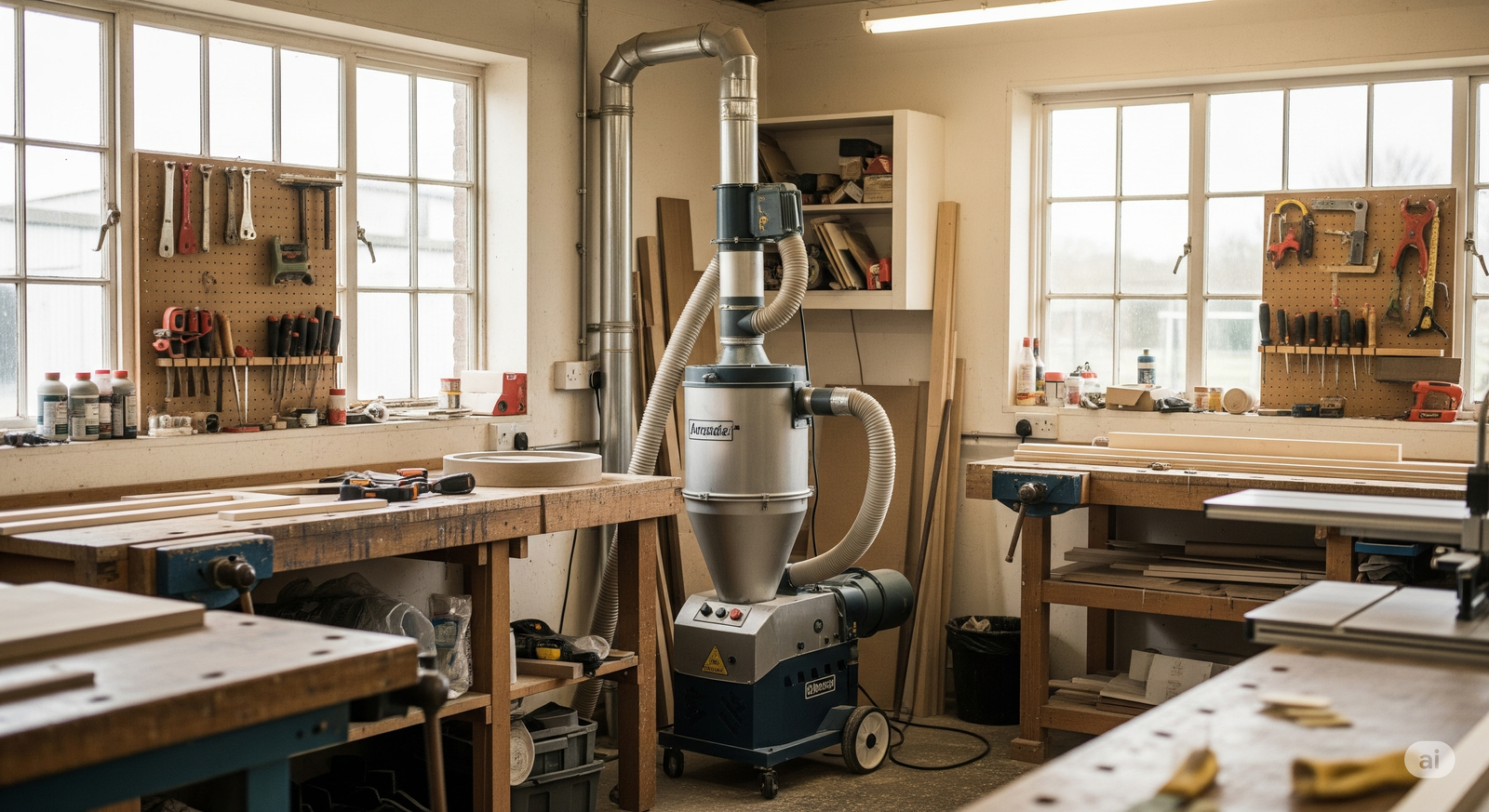Workshop Dust Extractor: A Complete Guide to Cleaner, Safer Work Environments
In the realm of industrial operations, especially woodworking, metalworking, and manufacturing workshops, maintaining a clean and hazard-free environment is non-negotiable. One of the essential components for achieving this is the workshop dust extractor. Designed to capture, filter, and remove airborne particles and fine dust generated during various industrial processes, a dust extractor is pivotal for protecting workers’ health and ensuring machinery longevity.
In the UK, where safety regulations and health standards are rigorously enforced, workshop dust extractors have become a fundamental part of both small and large-scale industrial operations. This article explores the features, benefits, costs, installation zones, and top-performing technologies of these units, as well as how to choose the right system for your workspace.
What Is a Workshop Dust Extractor?
A workshop dust extractor is a specialized ventilation system designed to collect and filter airborne dust particles produced during operations like sawing, sanding, grinding, and welding. These systems vary from compact, portable models to large, centralized setups that serve multiple workstations at once.
They typically consist of:
- Hoses or ducts to capture dust from the source
- Filtration units to trap particles
- Collection bins or bags for disposal
- Fans or blowers to maintain airflow
A well-functioning workshop dust extractor reduces the concentration of harmful airborne contaminants, prevents fire hazards, and extends the lifespan of tools and equipment.
Applications of Workshop Dust Extractors
Workshop dust extraction systems are widely used across various industries in the UK:
- Woodworking Shops: Removing sawdust and wood particles during cutting, sanding, and routing.
- Metal Fabrication: Capturing grinding dust, welding fumes, and other metal particulates.
- Pharmaceutical Plants: Ensuring sterile environments by controlling powder and chemical dust.
- Construction Sites: Extracting masonry dust during drilling, sanding, or demolition.
- Automotive Workshops: Collecting paint, filler, and composite dust from refinishing jobs.
The type of workshop dust extractor chosen depends heavily on the material being processed and the specific health risks posed by the dust involved.
Benefits of Installing a Workshop Dust Extractor
- Improved Air Quality: Dust extractors drastically reduce airborne particles that can cause respiratory issues such as asthma, silicosis, or allergic reactions.
- Compliance with UK HSE Regulations: Helps maintain adherence to the Health and Safety Executive (HSE) dust control standards.
- Increased Productivity: Cleaner environments lead to smoother operations and reduced downtime caused by equipment clogging or cleaning.
- Fire and Explosion Prevention: Fine particles, especially from wood or metal, are highly flammable. Extractors minimize this risk.
- Extended Equipment Lifespan: Clean machinery requires less maintenance and lasts longer.
Cost of Workshop Dust Extractors in the UK
The cost of a workshop dust extractor varies significantly based on factors such as:
- Capacity and size (single-user vs. multi-station systems)
- Filtration type (HEPA, bag, or cartridge filters)
- Automation and controls
- Portability
Here’s a rough cost estimate across categories:
| Type of Dust Extractor | Cost Range (GBP) |
|---|---|
| Small Portable Units | £150 – £500 |
| Mid-Range Stationary Units | £800 – £2,500 |
| Large Centralized Systems | £5,000 – £25,000+ |
While initial investments may seem high, the long-term return in health, safety, and productivity justifies the cost.
UK Locations with High Demand for Dust Extractors
Across the UK, certain industrial clusters exhibit higher demand for workshop dust extractor solutions. These include:
- Birmingham & the Midlands: Manufacturing heartland requiring dust control in metal and fabrication workshops.
- Greater Manchester: Home to numerous woodwork, plastics, and fabrication businesses.
- London & South East: Growing demand from construction, design studios, and industrial art workshops.
- Scotland (Glasgow & Edinburgh): Engineering and shipbuilding sectors with specific dust and fume extraction needs.
- Bristol & Southwest England: Small manufacturing units and artisan workshops benefit from compact dust extractors.
Types of Workshop Dust Extractors
Several models are available based on size, dust particle type, and airflow requirements:
- Single-Stage Extractors:
- Best for small workshops
- Simple filtration system
- Economical option
- Two-Stage Extractors:
- Feature a cyclone separator for heavy dust before fine filtration
- Improved efficiency and filter longevity
- Central Dust Extraction Systems:
- Ideal for large-scale operations
- Can be connected to multiple tools or machines
- Requires professional installation and maintenance
- Portable Dust Collectors:
- Easy to move between job sites
- Suitable for tradesmen or mobile technicians
- High-Vacuum Extractors:
- Designed for fine, hazardous dust (e.g., silica, lead)
- HEPA filtration available for cleanroom or pharmaceutical environments
Choosing the right workshop dust extractor depends on a thorough assessment of workshop needs, dust type, and workflow patterns.
Installation and Maintenance
Installation:
Proper installation is crucial for efficient performance. This includes ductwork layout, air velocity calibration, and filter setup. Some systems may need wall or ceiling mounts, while others are plug-and-play.
Maintenance Tips:
- Regular filter cleaning/replacement
- Inspection for blockages or clogs
- Motor and fan lubrication
- Ensuring airtight ductwork to avoid leakage
Routine checks extend system life and maintain optimal airflow and suction.
Eco-Friendly and Energy Efficient Features
Modern workshop dust extractor models are increasingly adopting sustainable and energy-saving technologies:
- Auto-shutoff systems to reduce power use
- Energy-efficient motors (IE2 or IE3-rated)
- Recyclable filter materials
- Noise-reduction designs to minimize workplace disturbance
Conclusion
A workshop dust extractor is more than just a convenience — it’s an essential tool for workplace safety, regulatory compliance, and operational efficiency. Whether you’re operating a small garage workshop or managing a large-scale fabrication facility in the UK, investing in a high-quality dust extraction system is vital.
With a wide range of models tailored to various industries and budgets, there’s never been a better time to upgrade your dust management solution. From cost-saving benefits to health protection and regulatory compliance, a properly selected workshop dust extractor delivers value on every front.

